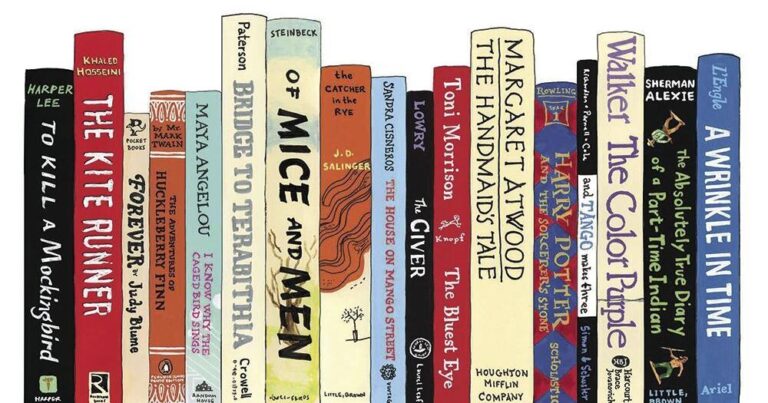Book banning. This is not a new phenomenon.
I remember well when I was in the seventh grade of secondary school, a pressure group was horrified by some of the titles in the high school curriculum and lobbied our local school board.
The Pigman, Lord of the Flies, The Catcher in the Rye, To Kill a Mockingbird, Animal Farm… all of these were on the list. I don’t remember why, but the fundamentalists were recounting them.
They counted how many swear words were in each novel (which must have been an exhaustive task; today it can be found with a Google search.) Their interpretation of literature was controversial.
One book that made quite an impact was Jaws by Peter Benchley, which many forget was a bestselling novel several years before Spielberg made it into a box office smash.
It seems unlikely that the group’s leaders read the book: the first chapter features a lengthy scene of Chief Brody urinating, followed by a detailed portrayal of an intimate relationship between the chief’s wife and Matt Hooper (a subplot that Spielberg omitted from the film).
The reason the board allowed this “filthy stuff” was because some of the kids at the alternative school weren’t interested in reading (sharks were cool in the late 70’s) and surely it’s better for kids to read something they’re interested in than not read at all?
At least that’s how my mother felt. She was on the School Committee at the time, and her views were very progressive by the standards of the 1970s.
Nearly 45 years later, anti-SOGI advocates want more of a say in what books are taught in schools and put on the shelves of public libraries. I wouldn’t want to be a librarian these days; they’re all so stuffy.
Censorship is rarely a good thing except in extremely obvious cases. Who gets to decide what is offensive?
I was surprised to learn that some schools are studying The Hunger Games. The idea of young people being killed for sport is disturbing… but some people see The Hunger Games in a different light. If we removed all the books because someone found them offensive, library shelves would be bare.
I think banning books will make book titles more interesting to young people.
To give a personal example from a film perspective, in 1986 there were people picketing cinemas in big cities, so I went to see The Last Temptation of Christ.
The negative reviews the film received prompted me to give it a watch – if it hadn’t been for the massive outcry, the film would have been written off as an arthouse film and pulled after five days.
During my senior year of high school, I took a Canadian literature class.
“If you or your parents have any concerns about the contents of the book, please speak to me privately and we will arrange it,” the instructor said on the first day of the course.
No one did… and the course included Timothy Findley’s The Wars.
I think it’s the same in today’s world. I don’t think educators are forcing students to read things that parents might find offensive.
Going back to the original question, why are book bans trending in 2024?
It is ironic that books with “safe” titles such as Adventures of Huckleberry Finn and Little House on the Prairie in the 1970s are now being denounced.
This issue isn’t likely to go away anytime soon: There are rumors that anti-SOGI candidates will run for school boards across the state in the next municipal elections, scheduled for October 2026.
I don’t want that to happen. I want elected officials on school boards to focus on issues like bullying, class sizes, illiteracy, graduation rates, and student safety, not whether or not there are transgender characters in teen fiction.
James Miller is Valley Editor for the Okanagan Newspaper Group.

